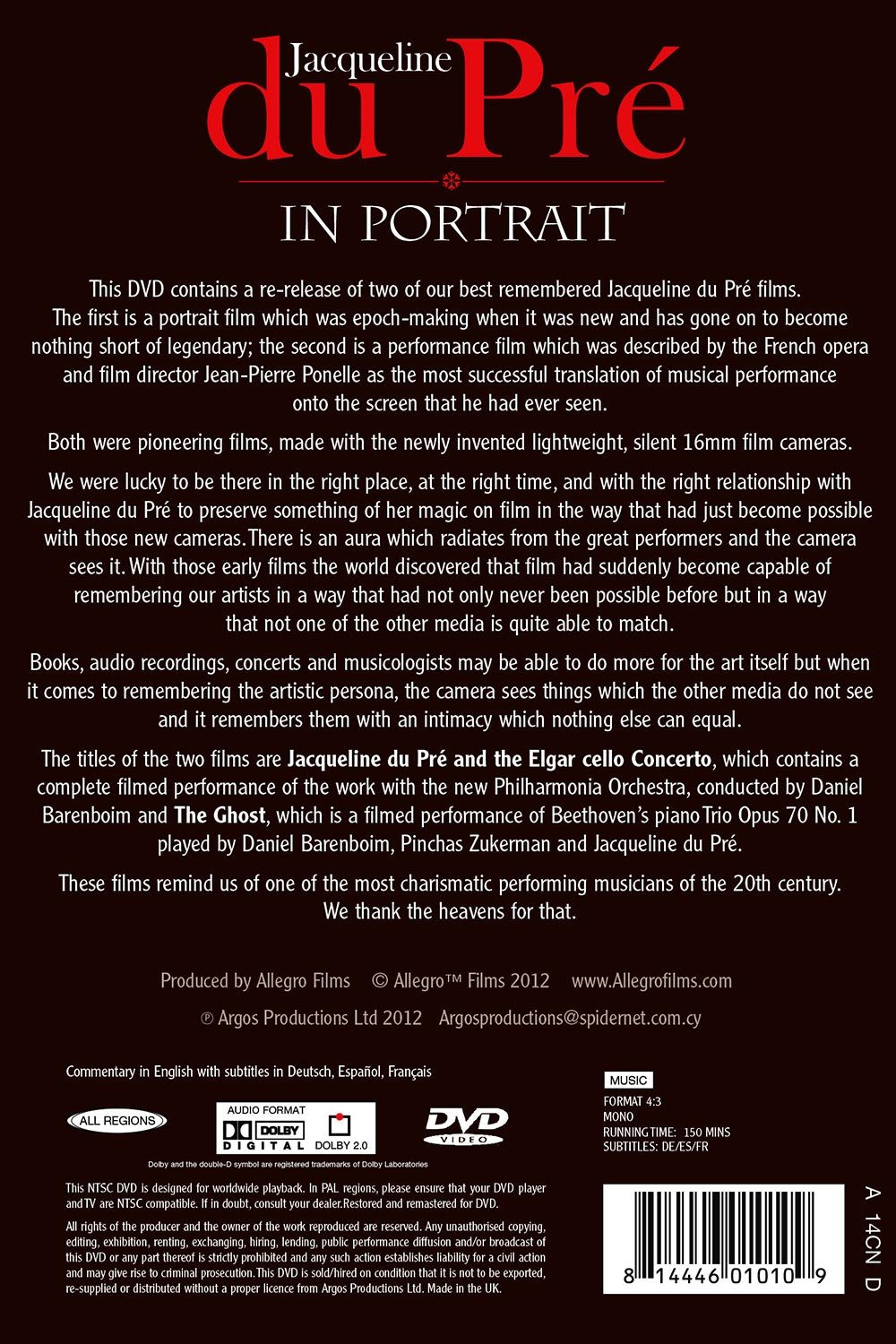 Image 1 of 2
Image 1 of 2

 Image 2 of 2
Image 2 of 2



Jacqueline du Pré: In Portrait
This DVD contains a re-release of two of our most cherished Jacqueline du Pré films. The first is a portrait film which was epoch-making when it premiered; the second is a performance film which was described by the French opera and film director Jean-Pierre Ponelle as the most successful translation of musical performance onto the screen that he had ever seen. Both were pioneering films, made possible by the newly invented lightweight, silent 16mm film cameras.
We were lucky to be there in the right place, at the right time, and with the right relationship with Jacqueline du Pré to preserve something of her magic on film. There is an aura which radiates from the great performers and when it comes to remembering the artistic persona, the camera sees things which the other media do not see and it remembers them with an intimacy which nothing else can equal.
The titles of the two films are Jacqueline du Pré and the Elgar cello Concerto, which contains a complete filmed performance of the work with the new Philharmonia Orchestra, conducted by Daniel Barenboim and The Ghost, which is a filmed performance of Beethoven's piano Trio Opus 70 No. 1 played by Daniel Barenboim, Pinchas Zukerman and Jacqueline du Pré.
This DVD contains a re-release of two of our most cherished Jacqueline du Pré films. The first is a portrait film which was epoch-making when it premiered; the second is a performance film which was described by the French opera and film director Jean-Pierre Ponelle as the most successful translation of musical performance onto the screen that he had ever seen. Both were pioneering films, made possible by the newly invented lightweight, silent 16mm film cameras.
We were lucky to be there in the right place, at the right time, and with the right relationship with Jacqueline du Pré to preserve something of her magic on film. There is an aura which radiates from the great performers and when it comes to remembering the artistic persona, the camera sees things which the other media do not see and it remembers them with an intimacy which nothing else can equal.
The titles of the two films are Jacqueline du Pré and the Elgar cello Concerto, which contains a complete filmed performance of the work with the new Philharmonia Orchestra, conducted by Daniel Barenboim and The Ghost, which is a filmed performance of Beethoven's piano Trio Opus 70 No. 1 played by Daniel Barenboim, Pinchas Zukerman and Jacqueline du Pré.






